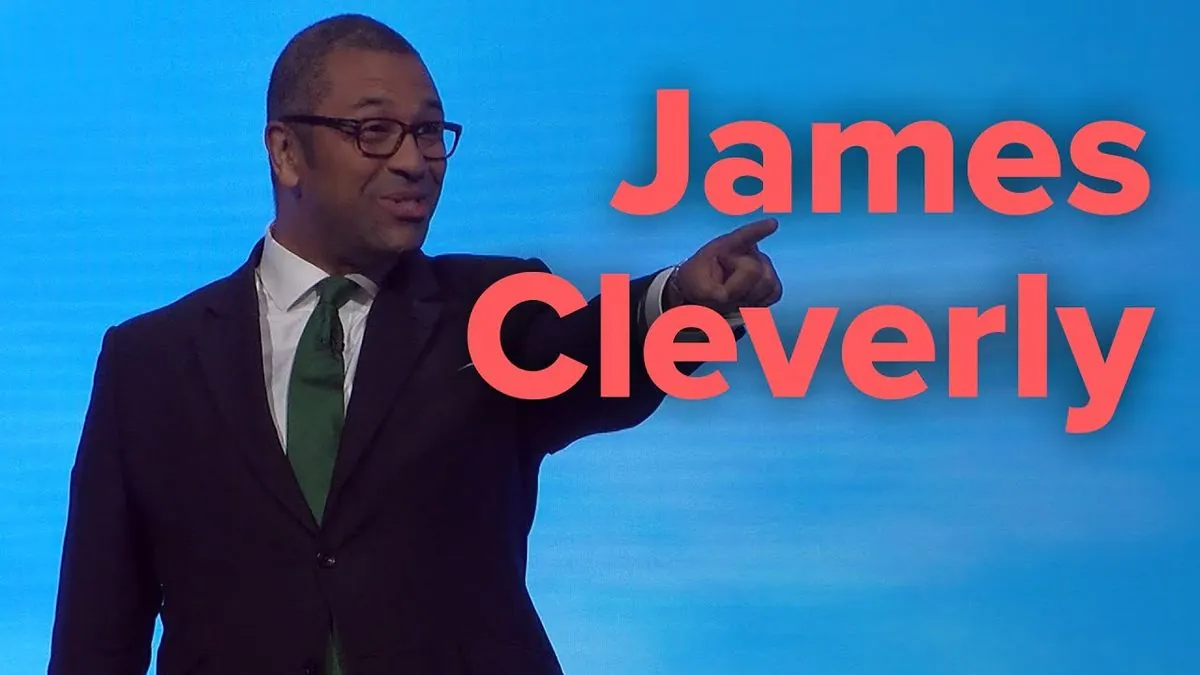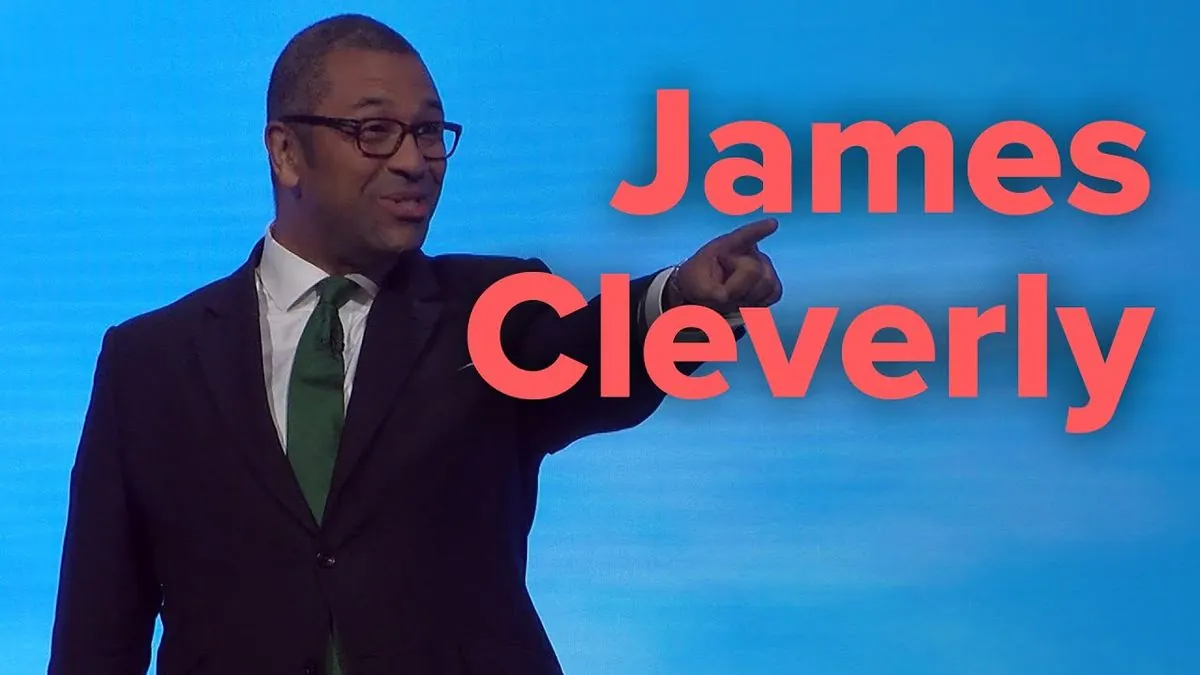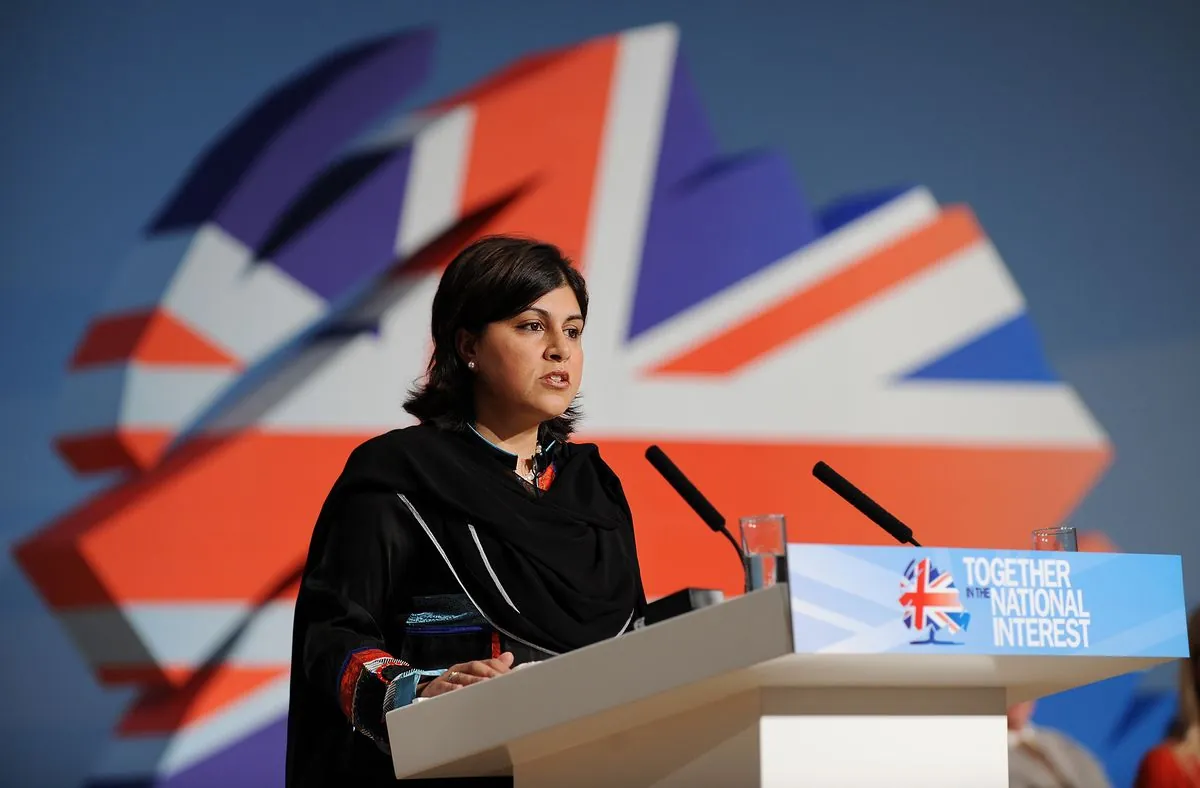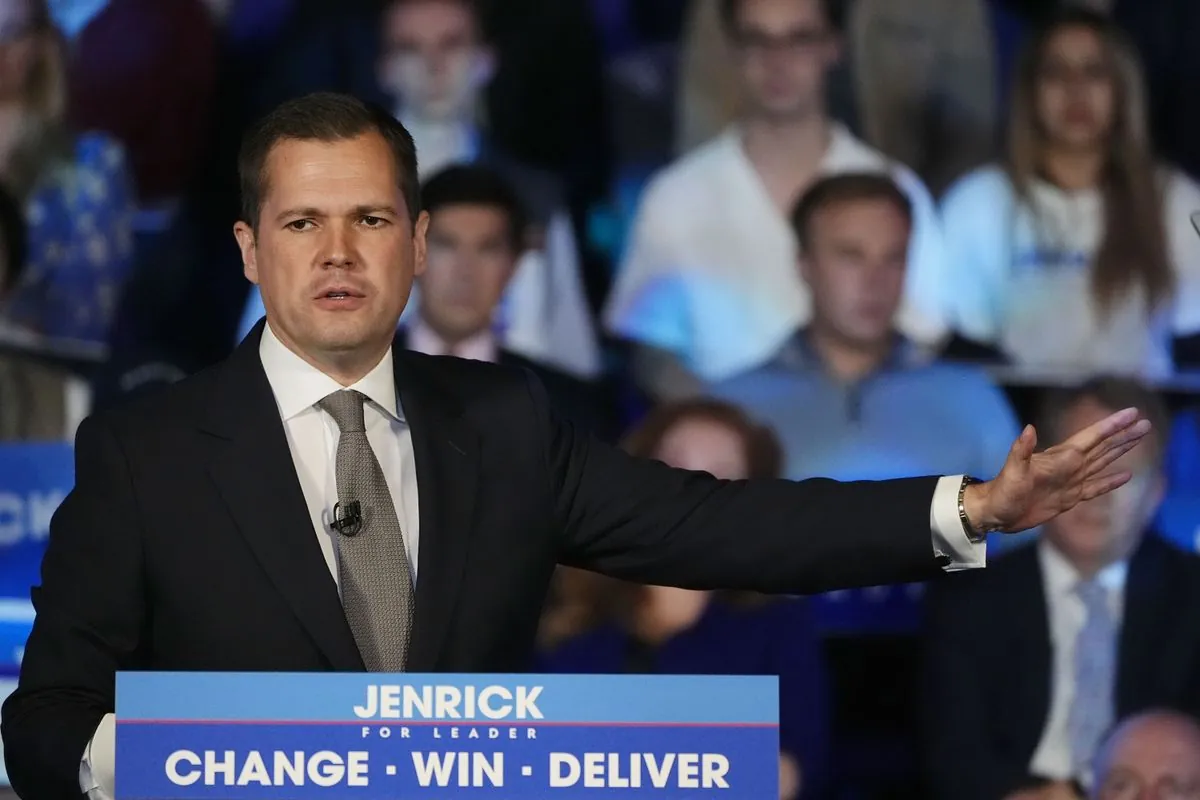Tory Leader Hopeful Advocates for 50% Tax Cap and Economic Reform
James Cleverly, a Conservative leadership contender, calls for a 50% tax ceiling and party return to tax-cutting roots. He warns of potential exodus under Labour's tax plans, emphasizing need for economic reform.

James Cleverly, a contender for the Conservative Party leadership, has proposed a significant shift in the UK's tax policy. In a recent statement, Cleverly advocated for a cap on personal taxation, suggesting that no individual should surrender more than half of their earnings to the government.
This proposal comes amidst growing concerns about the UK's increasing tax burden. According to the Institute for Fiscal Studies (IFS), the past 15 years have seen a fourfold rise in the proportion of adults facing marginal tax rates of 60% or more. This trend has sparked debate about the balance between public revenue and individual financial autonomy.
Cleverly's stance reflects a desire to reaffirm the Conservative Party's traditional values of lower taxes and reduced regulation. He argues that this approach is crucial for stimulating economic growth and attracting talent to the UK. The leadership hopeful drew parallels with France's experience under former President François Hollande, whose 75% income tax rate reportedly led to an exodus of wealthy individuals, many of whom relocated to London.
"Instead of putting people off we should be attracting them, with a low, fair, and simple tax rate. We should send the signal that Britain is open for work, not that you work for Britain."
The UK's tax system, known for its complexity, has been a subject of ongoing debate. With one of the longest tax codes in the world, simplification has long been a goal for reformers. Cleverly's proposal aligns with this sentiment, advocating for a more straightforward approach to taxation.

Critics of high tax rates often cite the Laffer Curve, an economic theory suggesting that beyond a certain point, higher tax rates can lead to decreased revenue. This concept underpins arguments for tax reduction as a means of stimulating economic activity.
Cleverly's position echoes the principles espoused by former Prime Minister Margaret Thatcher, who championed individual liberty and a smaller state. He emphasized the need to reduce government size and create conditions for economic growth, arguing that individuals are better stewards of their earnings than the state.
The debate over taxation in the UK is set against a backdrop of increasing public spending and a rising tax-to-GDP ratio. With the current top income tax rate at 45% for earnings over £150,000, and additional National Insurance contributions, some high earners already face effective rates approaching Cleverly's proposed 50% cap.
As the Conservative Party grapples with its future direction, Cleverly's tax proposal represents a call to return to its roots of fiscal conservatism. The outcome of this leadership contest could significantly shape the UK's economic policy in the coming years, potentially influencing everything from personal allowances to the structure of National Insurance contributions.
The challenge for any future government will be balancing the desire for lower taxes with the need to fund public services and manage the national debt. As the debate continues, the UK's complex tax system and its impact on economic growth and social equity remain at the forefront of political discourse.


































